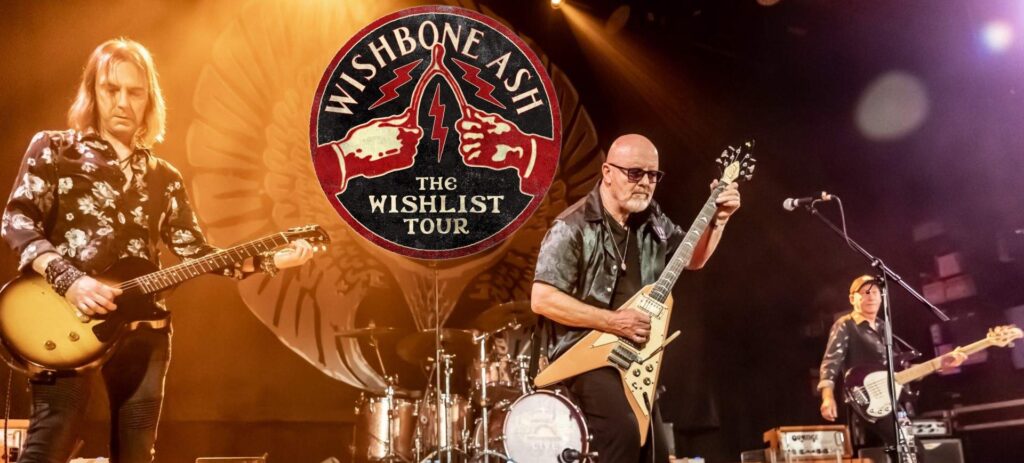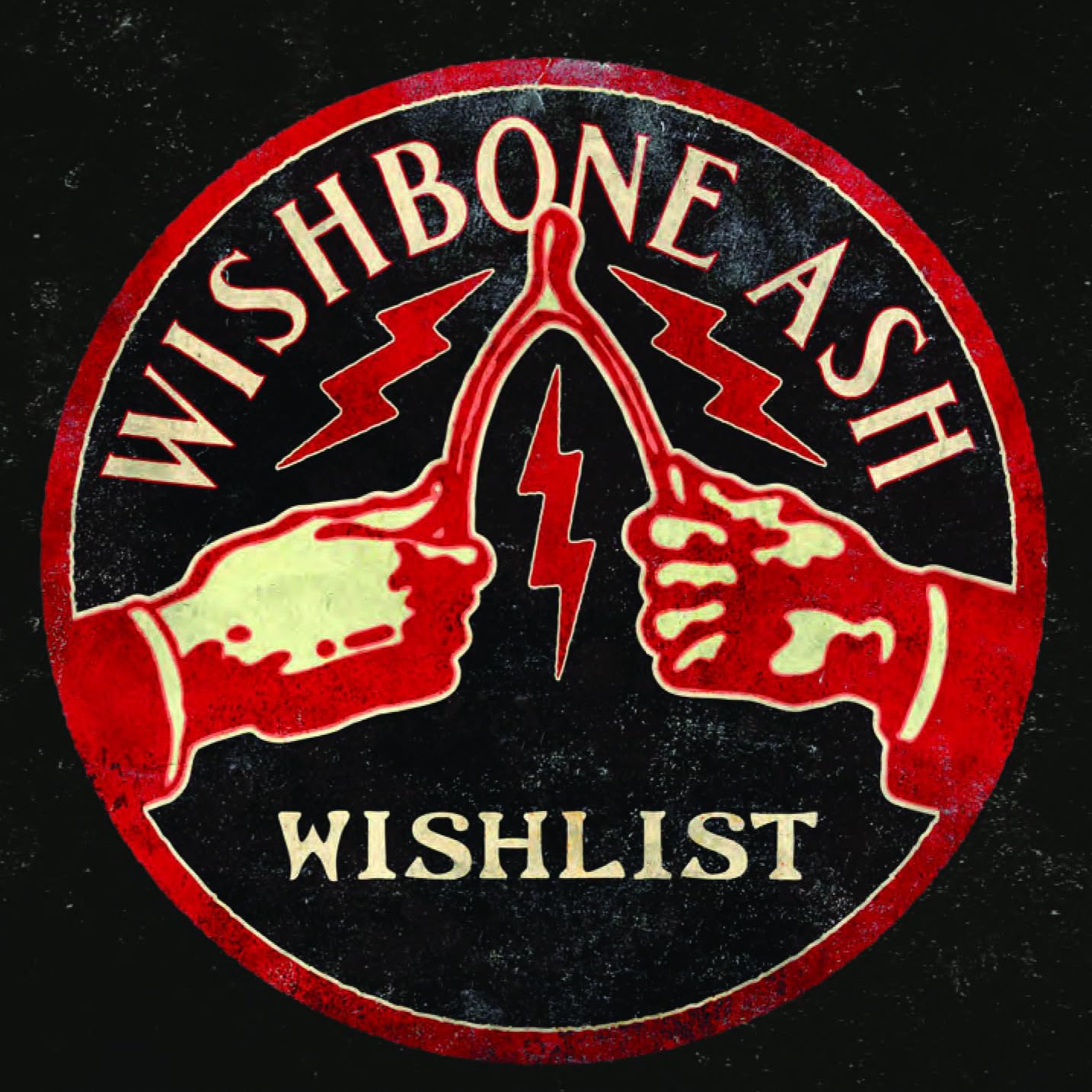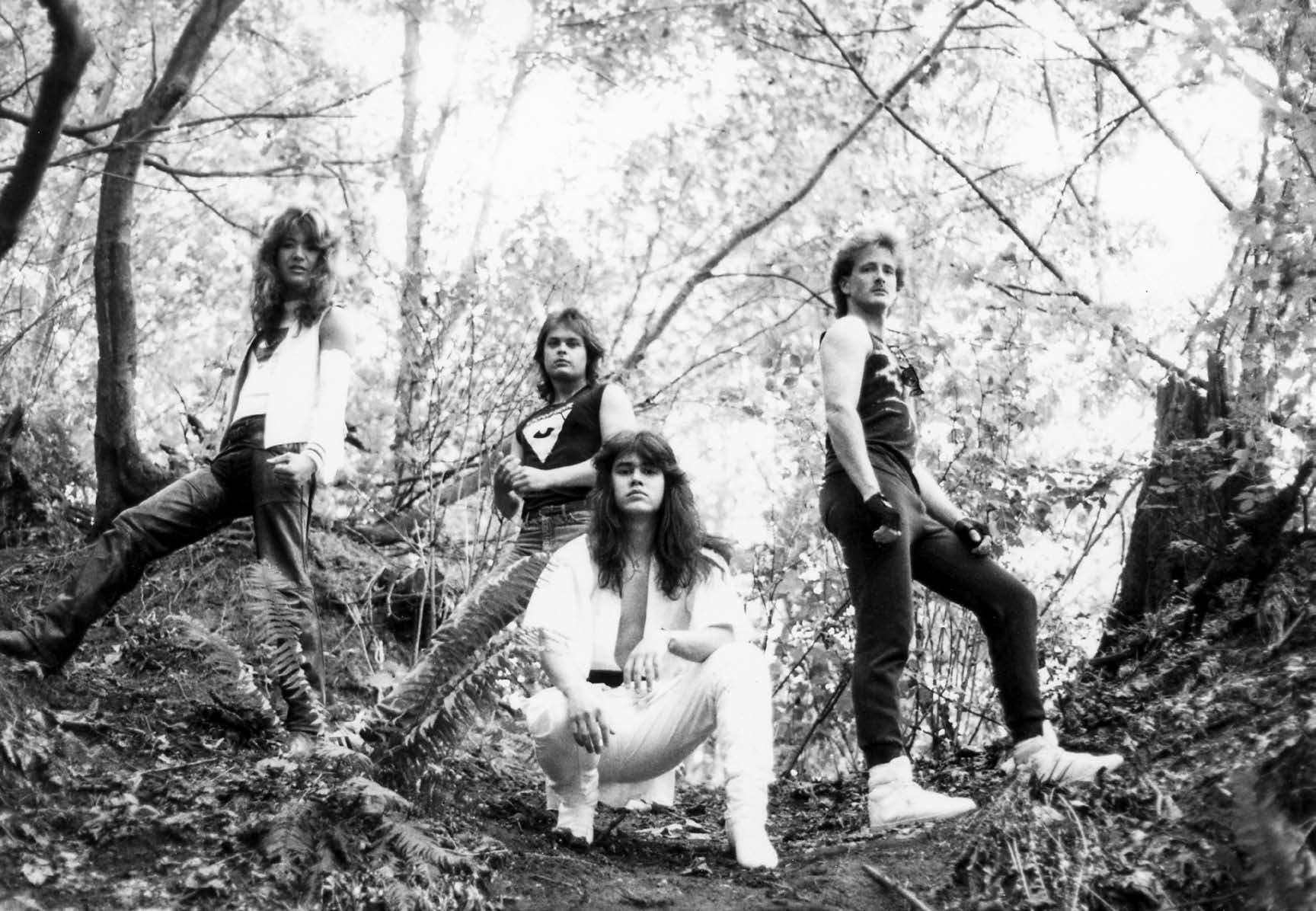Wishbone Ash – ‘Wishlist’ (2024)
This band has always had their own distinctive sound, so tight it’s almost orchestral or cinematic, thanks to twin lead guitars (Andy Powell, a founding member still there; Mark Abrahams since 2017) backed by inventive bass (Bob Skeat since 1997) and driving drums (Mike Truscott since 2022), augmented by strong vocal harmonies expressing their progressive themes.
This is an electrifying live choice by fans from a strong catalogue of over 200 songs in 50-plus years, the line-ups through the decades providing a varied smorgasbord of flavours and choices. Here, the songs are usually lengthy, applause minimal, chat and fillers zero.

Formed in Torquay in 1969 from other ’60s bands such as The Empty Vessels, they no doubt spiced their own sound, captured here loud and crisp, whether ballad or rocker, in 13 tracks for a full 84 minutes. When founders Martin Turner (bass) and Steve Upton (drums), who brought his jazz influences to the early palette, needed a new guitarist, they couldn’t decide between Powell and Ted Turner, so they hired both, though Turner left after the fourth album. Some compared them to the Allmans, but the Ash had wider prog elements in both sound and lyrics. In 1970, they opened for Deep Purple, whose Ritchie Blackmore recommended them to Decca/MCA, resulting in one of the strongest debut quartets of albums, which routinely entered the charts.
The eponymous debut at the tail of 1970 melded blues, jazz, psych, and prog (its side two had but two tracks) to hit #29 in the UK charts; this CD kicks off with its ‘Blind Eye.’ ‘Pilgrimage’ (1971) went 15 places higher with its ten-minute live finale (but nothing here, not even ‘The Pilgrim’ or ‘Jail Bait’), despite leaning more toward folk and instrumentals left off their debut, before what many deem their classic ‘Argus’ (1972), which had a career high (No. 3 and gold) as well as topping reader polls in Sounds and Melody Maker. Three classics are here: ‘Warrior,’ which fades into a buildup for their signature soaring guitar and melodic interludes of confident time changes reminiscent of Stray; ‘The King Will Come,’ with its famous riff and dreamy vocal; rounded by ‘Throw Down The Sword’ in kindred vein from the Greek mythology-themed album in its Hipgnosis cover.
There’s no CSNY-like ‘Blowin’ Free’ from ‘Argus’ or ‘Persephone,’ but there can’t be everything from a rich catalogue, even when a frontman was added, prompting the departure of Turner in the ’80s. From ‘Wishbone Four’ (1973, #12), the first they produced alone, repeated on their first live album to add in the studio both keys and horns, comes ‘Sorrel.’ From ‘There’s The Rub’ (’74, #16), the melodic, with pumping bass and wah-wah of ‘F.U.B.B.,’ plus ‘Lady Jay.’ Nice grooving wah-wah again in an 11-minute fretboard masterclass like the album sees ‘The Way Of The World’ (‘No Smoke Without Fire’ (1978)) and In Crisis with flowing harmonies over a strong beat. For that album, Derek Lawrence (Deep Purple, Pretty Things, Tull’s debut single, etc.) returned as producer.
From later albums are ‘Deep Blues’ (Blue Horizon, 2014), which lives up to its name with a swampy vibe feeding into great solos, and ‘We Stand As One’ from ‘Coat Of Arms’ (2020). ‘You See Red’ (first on a live 12” of 1978 recorded at Sheffield City Hall the year before) and ‘Heavy Weather’ highlight some concert faves, the latter’s eight-minute riffs and melodic dreaminess fused seamlessly into a powerful mix. Career digressions not covered, such as the heavier ‘Twin Barrels Burning’ (1982, #22, since remastered by Cherry Red) and an electronica experiment, only prove their longevity of over two dozen LPs in total.
Why are Wishbone Ash legends among those who know rock history (we don’t need latter-day puerility like “rock royalty”—do they also fleece the coffers of those under them as well?), as well as an often-cited influence decade after decade? It might surprise that they were in the charts with every release (similarly in this regard is the Edgar Broughton Band), but they could be seen all over the place—I even saw them play free in an East European city centre—any day of the week, generating a high reputation among music lovers then akin to UFO (the early pre-Wallis format), Medicine Head, Stray, and Groundhogs. Andy Powell believes their renown, if not fame, was due to live gigs aided by the music press, not radio or television, and thus word of mouth. This has resulted in their concerts becoming more like fan conventions, and that fuels this fine recording of a band who deserve to be in every music lover’s record collection.
Brian R. Banks
Wishbone Ash – ‘Wishlist’ (Talking Elephant)




